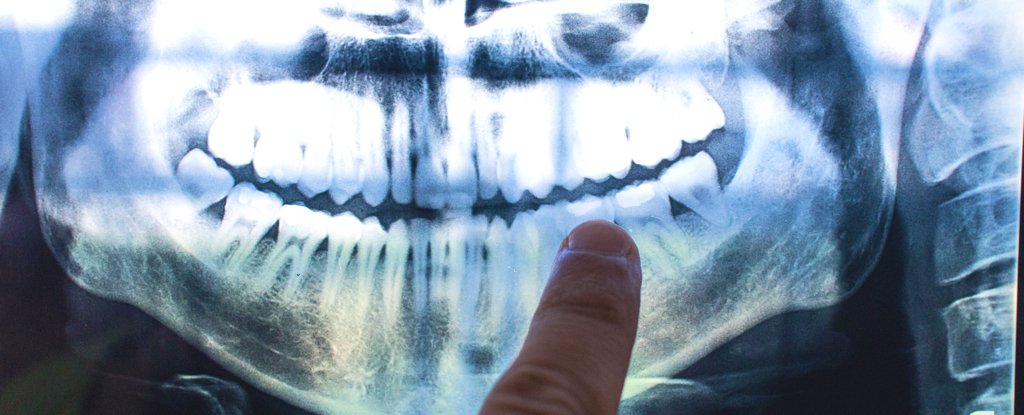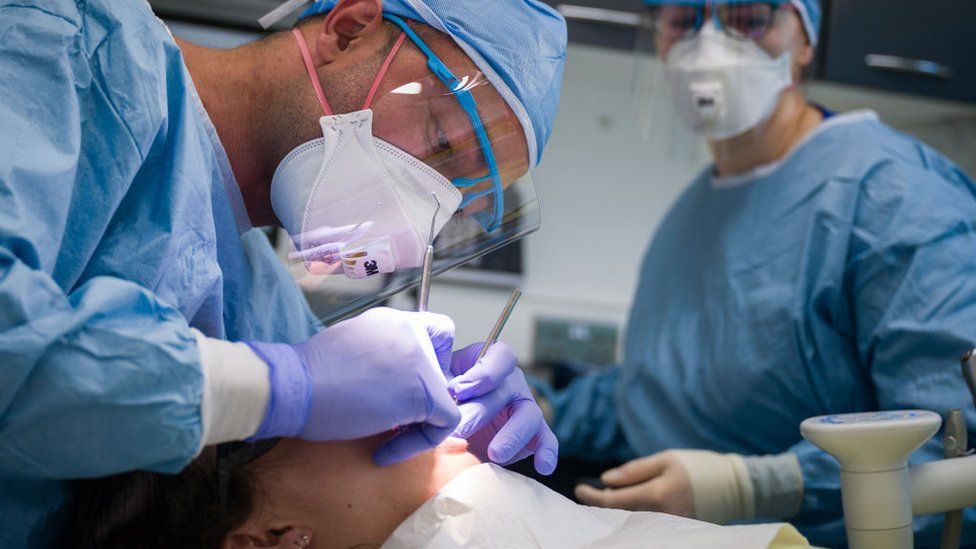
August 05, 2024
Most of The UK Predicted to Have Dental Disease by 2050, Study Finds

The National Health Service (NHS) was founded on the basic but powerful principle that access to healthcare should be based on clinical need, not the ability to pay.
Today, finding that principle in practice is increasingly hard to come by in one corner of the NHS.
Having travelled the country over the past few months, visiting people living in pain unable to get treatment, it is difficult to deny we are witnessing ‘the slow death of NHS dentistry’.
That is the conclusion of Shawn Charlwood, of the British Dental Association (BDA), who spoke to us as part of our investigation, but it is one shared by dentists across the profession.
In parts of the UK, it is now practically impossible to get an NHS appointment. We visited Somerset, Devon, Suffolk, Norfolk, and West Yorkshire, where families told us they have desperately tried and failed to find for months – and some cases years – an affordable dentist.
They are living in Britain’s growing number of ‘dental deserts’ – areas of the country where there simply aren’t enough NHS dentists to meet the needs of the population.
The only option is to go private and pay potentially ten times the amount for dental work, but for many people that is no option at all.
And so they suffer in silence, and in some extreme cases, take matters into their own hands - buying their own dental kits online, pulling out their own teeth with pliers, and even drilling their own mouths.
DIY dentistry is happening in Britain in 2022.
We met Carlton Hill in Swansea. He had an infected molar and was being treated by an NHS dentist. But the practice closed during the pandemic, leaving him unable to get the specialist tooth extraction he needed.
After days in steadily mounting pain, he felt so desperate, he reached for the toolbox.
“Putting the pliers on at first felt unnatural. Didn’t feel like something I should ever do hearing metal to tooth,” he said.
Carlton Hill was left unable to get the dental treatment he needed after his NHS practice was forced to close due to Covid. Credit: Tonight programme
“That was the moment I started feeling myself about to pass out and started to panic a lot about that and figured I’ve got to put it all in now.
“So, I pressed as hard as I could on the pliers and pulled as hard as I could. And that’s when I heard the, uh, two pieces crack off”.
Carlton laughs as he recounts the story – at the absurdity of what he had to do – and can’t quite believe that almost seven months later, he was back at the tool box, sanding down another tooth that had broken.
In parts of the country charities now run pop-up clinics in car parks, fields and leisure centres as volunteer dentists step in where the state is failing.
People wake at dawn and queue for hours to see them, because there really is no other way of seeing a dentist. The charity which runs this, Dentaid, say they often turn people away.
Dentaid are encouraging British residents to “visit their dentist regularly” so that diseases such as oral cancer can be diagnosed as soon as possible.
The pandemic has undoubtedly made things worse. The Covid lockdowns forced dental practices to cancel treatments and some to shut their doors altogether.
The BDA estimates 40 million appointments were lost in two years across England, creating a sizeable backlog.
This crisis was however in-train long before coronavirus. Dentists have been warning for well over a decade that the current NHS contract they work for is underfunded and unsustainable.
Unlike hospitals, the NHS doesn’t directly run dental practices. It relies on dentists signing up to NHS contracts to provide subsidised treatment to those eligible and in need.
The ultimate issue is fewer are providing that treatment.
“Give up. You’re simply not going to get an appointment around here” is the response some dental practices have given the Tonight programme.
New data shared exclusively with the Tonight programme by the BDA shows that between March 2021 and 2022, of the 24,272 dentists with NHS contracts in England, 15% – almost 4,000 – are carrying out just one course of NHS treatment a month.
We have also learned recent attempts to create more appointments have failed.
In January, the government announced £50 million for NHS dentistry in England to free up 350,000 more appointments. It was hoped the funding would help deliver extra out-of-hours care to try and clear the Covid backlog.
Figures, however, seen by the Tonight programme show just 63,000 extra appointments were created and only 28% of the £50 million fund was spent.
The BDA say that the main problem is there simply weren’t enough dental staff to take up the investment.
Dentist Dr Jeff Sherer owns a dental surgery in Hull, where almost 90% of patients on his books are treated on the NHS.
Dr Jeff Sherer said at times his practice have treated patients for free if they’ve been unable to afford the cost.
He told us he would be much better off financially if he became a private practice. Despite ever-increasing running costs, he says the NHS contract hasn’t changed since 2006.
“Unfortunately, NHS dentistry is dying and it’s been dying for quite a long time,” Dr Sherer said.
“The costs of running a dental practice have grown dramatically. We find that there are treatments that we deliver at a loss because it costs more to use the materials than we receive from the NHS for providing the treatment.”
It is those unable to afford to go private paying the biggest price.
On the NHS you never pay more than £65.20 if you need filings, root canal or tooth extractions. At a private practice a filling can be up to £250, an extraction £370, and root canal treatment over £900.
An NHS dentist will charge, at most, £282.80 for crowns, dentures and bridges. But privately you can pay anywhere between £1,000 and £2,500 for the same treatments.
Toothache is not just about the physical pain, the mental toll can also be exhausting.
Take Lydia Davis, who exhausted every route to get an NHS appointment in Somerset. She says she called around 40 practices without any results, after being deregistered during the pandemic – we’ve heard the same story repeated across the country.
She says the pain she was living in was like something from a horror movie.
Lydia said she overdosed on painkillers because she “couldn’t stand the pain anymore”.
At one point – after living in pain for months – it just became too much for her and she took an extreme step, such was her distress and desperation to end the agony.
“I overdosed on painkillers, just because I couldn’t stand the pain anymore. I really hurt myself a lot of the time,” she said.
“I’ve hit myself in the head because putting the pain somewhere else, takes it away from there.”
In July, the government and NHS England proposed what they say are the “first significant changes to dentistry since 2006”. Dentists say they don’t go far enough.
We have repeatedly asked the government and NHS England for an interview to discuss the contract and the concerns of people we’ve met as part of our Tonight programme, ‘Pulling Teeth: The End of NHS Dentistry?’ They both declined our offers.
NHS England and The Department of Health told us that “dental services are recovering post pandemic”, with over “26.4 million courses of treatment delivered last year by NHS dentists between April 2021 and March 2022”.
Lydia has finally been able to get an appointment – her first since 2019. But for every Lydia, there are millions of others for whom there’s no such happy ending.
For them the nightmare goes on.
Reported by Daniel Hewitt